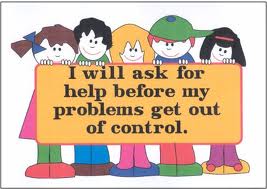 Whether you are searching for a job or working in a job, at some point you will need to ask for help if you don’t want to hinder your progress. No man or woman should be an island in their life or work. It’s unrealistic to expect yourself to know it all or do it alone.
Whether you are searching for a job or working in a job, at some point you will need to ask for help if you don’t want to hinder your progress. No man or woman should be an island in their life or work. It’s unrealistic to expect yourself to know it all or do it alone.
This is why the ability to ask for help is one of the most critical soft skills to develop in order to achieve excellence in your career. Tom Peters, the author of the famous management book, “In Search of Excellence,” agrees. Assuming that you also agree, let’s talk about how to best ask for help, since the approach matters. Here are 7 tips on how to ask for help effectively:
- Be judicious about what to ask for help on – Only ask for help on things that you have tried but cannot do well. Don’t ask for help on simple things that you could really do if you just worked a little more. You don’t want to build a reputation of laziness or dependency. With that said, when some things are clearly outside your expertise, it will show that you are smart if you ask for help early.
- Determine who is the best person to ask for help – There are many people you can ask for help from — friends, colleagues, boss, class mates. It’s important to figure out who will give you the best result. For example, if you need senior level coverage on work, then ask your boss; if you need to address a sensitive political issue at work, ask a mentor outside of work, since you need to trust the person to give you objective advice; if you need introductions to a company that you want to work for, then ask anyone and everyone in your network that has a first level Linkedin connection with someone in that company. Preferably, ask someone in the department that you want to work in.
- Don’t chicken out – 50% of the effort of asking for help is actually doing it. I know lots of people who want help but don’t do it for two reasons: 1) Ego — they don’t want to appear weak. 2) Embarrassment — they don’t want to be “rejected.”
Regarding #1, I actually think the inability to ask for help is a weakness. For example, if you are job searching and you are not using every person in your network to help you, then you are actually lowering your chances of getting a great job. Regarding #2, it’s also ego related. We will talk more about it in Tip #6 — “Expect nothing.” - Be specific, tailored, and provide context – First, it’s important to be clear about what help you actually need. The clearer you are, the better the other person can determine if and when they can help. Second, provide context: you may have struggled with this issue for days, but the other person may know nothing about it. Make sure you share enough background information so they understand what you need help with and why you need help. Last but not the least, if you plan to ask several people to help with the same issue (e.g, connect you with someone in company x, y, z) don’t mass email. You will get a higher response rate if you write a personal email to each.
- Show you tried to resolve it yourself – For certain issues, especially work related issues where you might ask your boss or colleagues for help, it’s important to show that you have thought about how to resolve it yourself. Come with some initial thoughts or options about how you plan to approach the issue. This way, it’s easy for anyone to react to it and point you to the right direction faster. It also shows that you are not just trying to dump your issues on them.
- Expect nothing – Many people believe that if they made the effort to ask for help, the person has to help them. As such, if the other person refuses, they feel slighted. This is one of the biggest reasons why people are reluctant to ask for help. I recommend changing your perspective: don’t expect help even if you ask. Sometimes people cannot help because they don’t have the time or the expertise you thought they had. A decline to help is okay, so don’t take it personally. Many times people will decline, but will give you other ideas to pursue. This is all part of the process. The sooner you can expect nothing and keep asking, the sooner you can master the soft skill of asking for help.
- Follow up and be thankful – If you don’t get a response right away, it is your job to follow up since you are the one who wants the help. Also, regardless of the response you get, helpful or not, thank them, since you want to maintain the relationship you have with them. Some people may not help you with an issue today, but can be a big help tomorrow.
At the end of the day, these 7 tips may be concepts that you already know. The question is: are you practicing it at work or in your job search? Best wishes to your career success.
Your comments: What is the hardest part for you when you ask for help? Add your comments and questions below. Let’s have a discussion.
Like this post? Share on Linkedin, Email, Twitter, Facebook, Google +, etc.
I am always in your corner.
– Lei